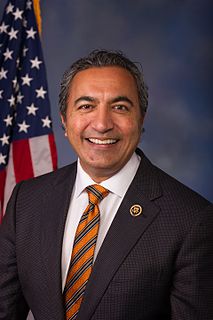A Quote by Ken Liu
I think the narrative of people being caught between two cultures as immigrants is very harmful. It's exclusionary. It essentially tries to argue that some Americans are more real than others.
Related Quotes
A range of studies shows there is no evidence immigrants commit more crime than native-born Americans. In fact, first generation immigrants are predisposed to lower crime rates than native-born Americans. The two cities in this country most impacted by undocumented immigrants, you would think of the New York City with over 500,000 and Los Angeles, with a similar amount. Both those cities are among the safest in the free world.
If our well-being depends upon the interaction between events in our brains and events in the world, and there are better and worse ways to secure it, then some cultures will tend to produce lives that are more worth living than others; some political persuasions will be more enlightened than others; and some world views will be mistaken in ways that cause needless human misery.
The different American experience of the 20th Century is crucial because the lesson of the century for Europe, which essentially is that the human condition is tragic, led it to have a build a welfare system and a set of laws and social arrangements that are more prophylactic than idealistic. It's not about building perfect futures; it's about preventing terrible pasts. I think that is something that Europeans in the second half of the 20th century knew in their bones and Americans never did, and it's one of the big differences between the two Western cultures.
I think the most important thing is to, without belligerence, stand up for what want. Argue compellingly if someone tries to change your script. Yeah, legally they can if they want to. But rather than give up, as some of the writers do, and just wail about how your script got rewritten, it's much more difficult - but well within the realm of possibility - to argue very sincerely, calmly, and reasonably from your point of view, such that the director or the producer might decide, "All right, let's do it that way."
Our nation is built upon a history of immigration, dating back to our first pioneers, the Pilgrims. For more than three centuries, we have welcomed generations of immigrants to our melting pot of hyphenated America: British-Americans; Italian-Americans; Irish-Americans; Jewish-Americans; Mexican-Americans; Chinese-Americans; Indian-Americans.
Audiences are very sophisticated and they know the nuts and bolts of the genre - certainly with horror more than others I think. But they attract lots of people, they're much derided as a genre but people go and see them and they're not all dumb. There's some very clever horror films. Stephen King gets a lot of flack for not being a proper writer because he's a horror writer, but I think he writes some brilliant books. I think it's wrong to just bin it before looking at it.
Our options oftentimes on foreign policy are not a choice between a good one and a bad one. It's a choice between two less-than-ideal options. And you're trying to figure out which is the least harmful of the two. And I think that's something we should be encouraged by, not something that we should be critical of.
Honestly, some cases have been more famous than others - like Tot Mom, or Steven Avery, or Scott Peterson - but I would not characterize any one as being more special to me, more intriguing, or more important because that would be placing one victim as more important, or one defendant as more [notorious] than others, and I don't think that's right.





































